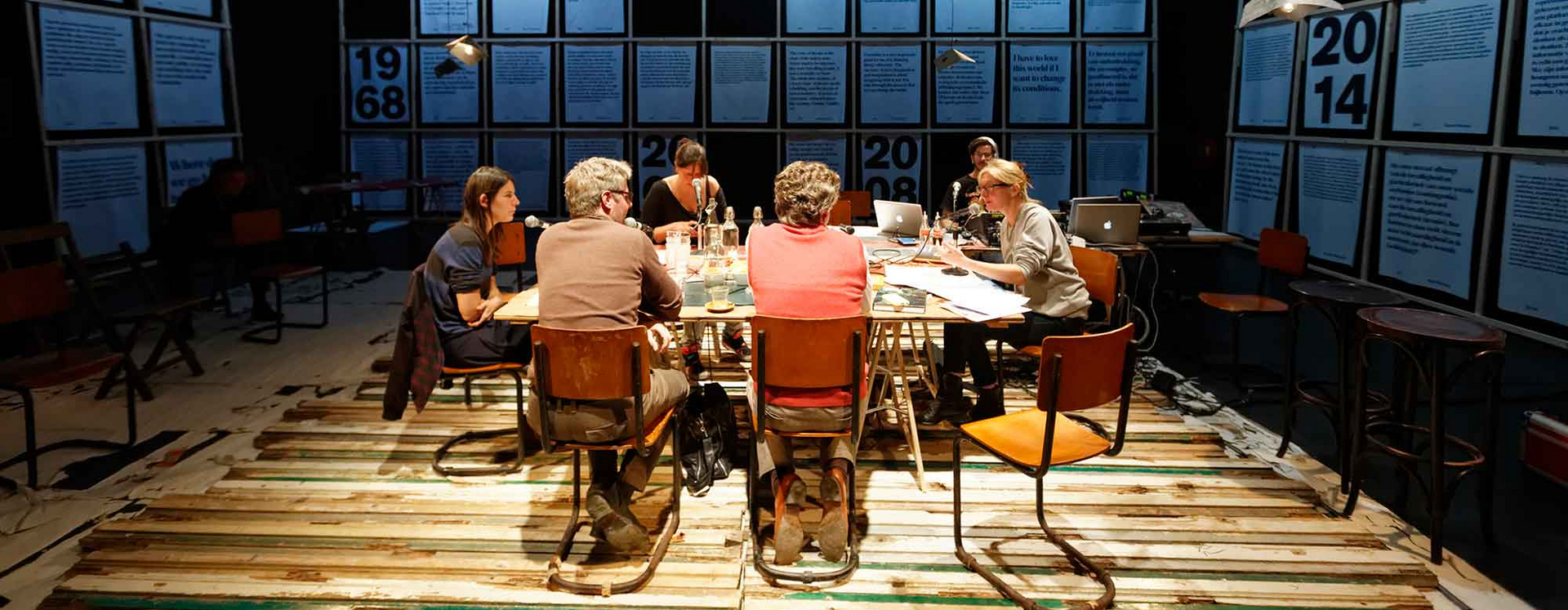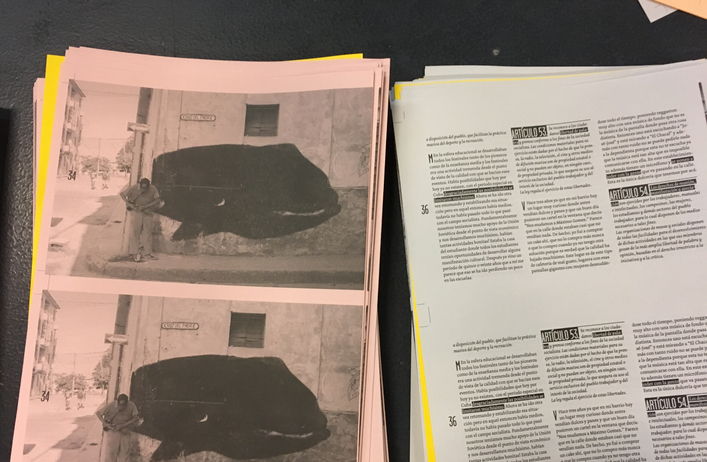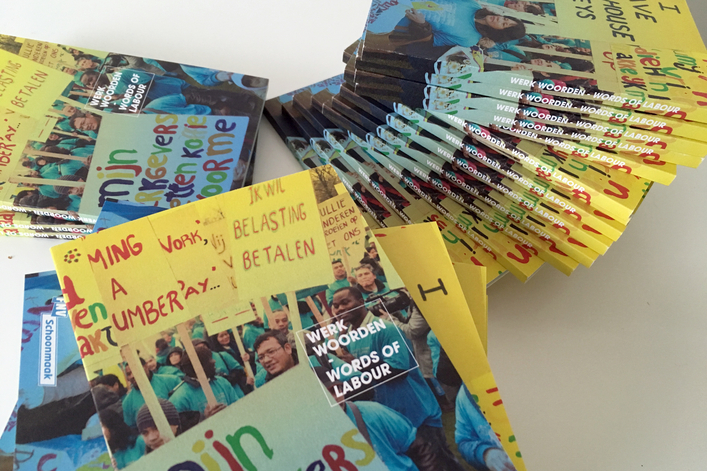Cecilia Vallejos
Developing a trajectory as a theatre director, Cecilia Vallejos has oriented her practice toward dramaturgies of texts based on testimonial narratives. From 2003 to 2014, she produced a versatile way of working based on statements, biographical accounts and recollections of stories.
In the year 2011, she started collaborating with domestic workers and artists of the Union of Cleaners (FNV) in producing joint projects, in particular videos and publications as part of the group’s ongoing struggle for legalisation of their labour. This unique association between artists and non-artists, in combination with the tactics of visualisation to reach out to and work for a different public, situated her skills and research procedures anew. In 2015 she earned a second academic degree at the University of Amsterdam on the topic of the conceptual understanding of art practices connected to specific contexts.
Research
The most significant turning points in my artistic practice were inspired by collaborations I maintained with various social groups – unionized (undocumented) workers, self-organized groups within communities or marginalized minorities. Dealing with the position they had and have in society led me to investigate a variety of strategies to adequately express the driving energies and entanglements of these communities and their issues. My role in these creative processes was to provide artistic dramaturgy to life stories for films and publications that embody specific issues.
These experiences not only shifted the focus of my expertise but also provided relevant methodological questions for broader issues regarding artistic practice. What does it mean for an artist to work with(in) a community? Which are the skills you might need? What makes art ‘good’ or ‘bad’ for different audiences? My current research examines collaborative forms of situated artistic practice in order to elaborate a pedagogical model. A model to enable artists to better engage with new contexts with different demands.
Working with and for different groups of society suggests a diversely interpreted authorship as well distinguishing which aesthetic language is useful for each case. My trajectory at THIRD will be dedicated to formalize what this shift can produce in a long term, practically and conceptually, for art and artists engaged in collaborations inside and outside institutional frameworks. Thinking in terms of pedagogy means promoting ways of imagining artistic practices to resiliently and creatively respond to the demands of the times in which we are living.
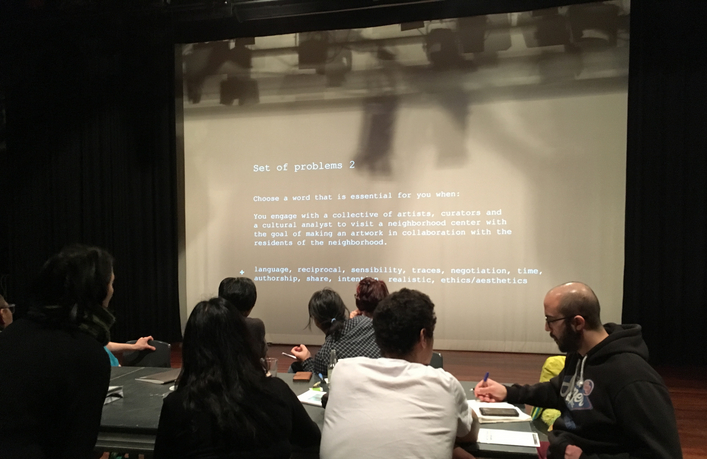
Class for Lectoraat Artistiek Onderzoek HKU, Utrecht, 2018
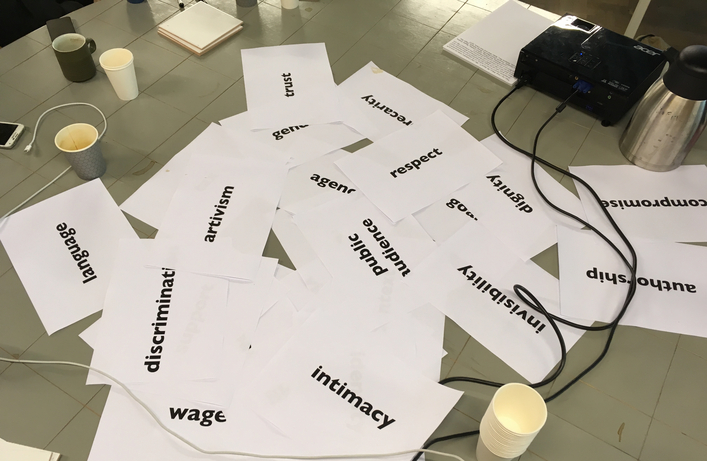
Class for Critical Studies - Sandberg Institute, Amsterdam, 2017
